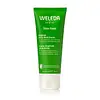What's inside
What's inside
 Key Ingredients
Key Ingredients

 Benefits
Benefits

 Concerns
Concerns

 Ingredients Side-by-side
Ingredients Side-by-side

Aloe Barbadensis Leaf Juice
Skin ConditioningSqualane
EmollientGlycerin
HumectantOvum Oil
EmollientButyrospermum Parkii Butter
Skin ConditioningCandelilla Cera
EmollientButter
Skin ConditioningBisabolol
MaskingPolyhydroxystearic Acid
EmulsifyingPunica Granatum Sterols
Skin ConditioningAloe Barbadensis Leaf Extract
EmollientRetinol
Skin ConditioningLecithin
EmollientBeta-Glucan
Skin ConditioningCeramide As
Skin ConditioningAnthemis Nobilis Flower Oil
MaskingAstaxanthin
Skin ConditioningGossypium Herbaceum Seed Oil
Skin ConditioningTocopherol
AntioxidantPoria Cocos Extract
Skin ConditioningCoconut Oil Decyl Esters
Skin ConditioningHyaluronic Acid
HumectantLinum Usitatissimum Seed Oil
PerfumingAlgae
Skin ConditioningBifida Polysaccharide
HumectantSimmondsia Chinensis Seed Oil
EmollientHelianthus Annuus Seed Oil
EmollientAloe Barbadensis Leaf Juice, Squalane, Glycerin, Ovum Oil, Butyrospermum Parkii Butter, Candelilla Cera, Butter, Bisabolol, Polyhydroxystearic Acid, Punica Granatum Sterols, Aloe Barbadensis Leaf Extract, Retinol, Lecithin, Beta-Glucan, Ceramide As, Anthemis Nobilis Flower Oil, Astaxanthin, Gossypium Herbaceum Seed Oil, Tocopherol, Poria Cocos Extract, Coconut Oil Decyl Esters, Hyaluronic Acid, Linum Usitatissimum Seed Oil, Algae, Bifida Polysaccharide, Simmondsia Chinensis Seed Oil, Helianthus Annuus Seed Oil
Water
Skin ConditioningHelianthus Annuus Seed Oil
EmollientLanolin
EmollientPrunin
AntioxidantPrunus Amygdalus Dulcis Protein
Skin ConditioningPrunus Amygdalus Dulcis Oil
Skin ConditioningCera Alba
EmollientAlcohol
AntimicrobialSoy Acid
EmollientCalcium Ascorbate
AntioxidantGlycerin
HumectantLimonene
PerfumingViolacein
AntimicrobialViola Tricolor Extract
EmollientEel Extract
HumectantHydrolyzed Beeswax
EmulsifyingSorbitan Olivate
EmulsifyingRosmarinic Acid
AntioxidantSalvia Officinalis Oil
MaskingChamomilla Recutita Flower Extract
MaskingCalendula Officinalis Flower Extract
MaskingArginine
MaskingZinc
AntioxidantZinc Sulfate
AntimicrobialParfum
MaskingLinalool
PerfumingGeraniol
PerfumingCitral
PerfumingCoumarin
PerfumingWater, Helianthus Annuus Seed Oil, Lanolin, Prunin, Prunus Amygdalus Dulcis Protein, Prunus Amygdalus Dulcis Oil, Cera Alba, Alcohol, Soy Acid, Calcium Ascorbate, Glycerin, Limonene, Violacein, Viola Tricolor Extract, Eel Extract, Hydrolyzed Beeswax, Sorbitan Olivate, Rosmarinic Acid, Salvia Officinalis Oil, Chamomilla Recutita Flower Extract, Calendula Officinalis Flower Extract, Arginine, Zinc, Zinc Sulfate, Parfum, Linalool, Geraniol, Citral, Coumarin
 Reviews
Reviews

Ingredients Explained
These ingredients are found in both products.
Ingredients higher up in an ingredient list are typically present in a larger amount.
Glycerin is already naturally found in your skin. It helps moisturize and protect your skin.
A study from 2016 found glycerin to be more effective as a humectant than AHAs and hyaluronic acid.
As a humectant, it helps the skin stay hydrated by pulling moisture to your skin. The low molecular weight of glycerin allows it to pull moisture into the deeper layers of your skin.
Hydrated skin improves your skin barrier; Your skin barrier helps protect against irritants and bacteria.
Glycerin has also been found to have antimicrobial and antiviral properties. Due to these properties, glycerin is often used in wound and burn treatments.
In cosmetics, glycerin is usually derived from plants such as soybean or palm. However, it can also be sourced from animals, such as tallow or animal fat.
This ingredient is organic, colorless, odorless, and non-toxic.
Glycerin is the name for this ingredient in American English. British English uses Glycerol/Glycerine.
Learn more about GlycerinHelianthus Annuus Seed Oil is the oil derived from the seeds of a Sunflower. Sunflower seed oil is non-fragrant. It is an emollient, meaning it helps to soften the skin.
Sunflower seed oil contains many fatty acids. The fatty acids found in sunflower seeds include (from highest amount to least): linoleic acid, myristic acid, palmitic acid, stearic acid, arachidic acid, oleic acid, and linolenic acid.
These fatty acids help the skin create ceramides. Ceramides play a role in repairing the skin barrier.
Helianthus Annuus Seed Oil helps moisturize the skin. This in turn helps the skin look more rejuvenated and smoother.
Sunflowers are rich in vitamin E.
Historians believe Indigenous cultures of North America domesticated sunflowers before corn. Thus they relied on sunflower oil for a variety of uses. One such use is moisturizing skin and hair.
Sunflower seed oil may not be fungal acne safe. We recommend speaking with a professional if you have any concerns.
Learn more about Helianthus Annuus Seed Oil